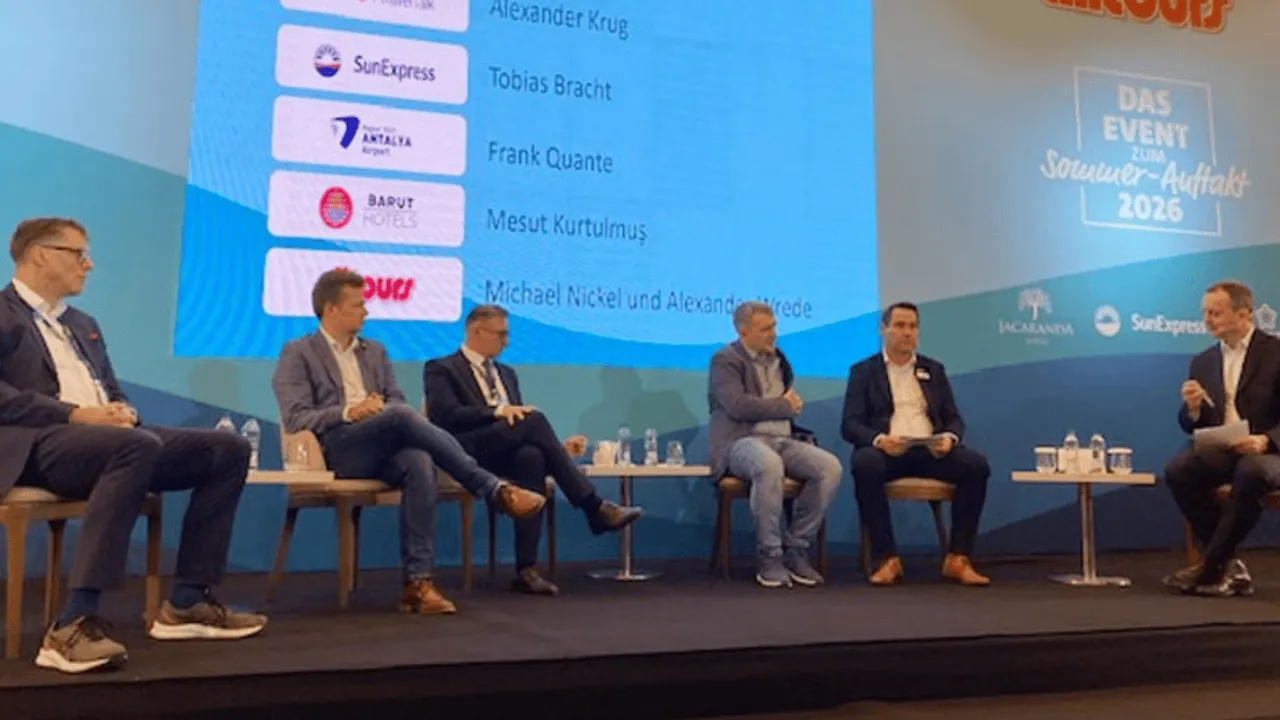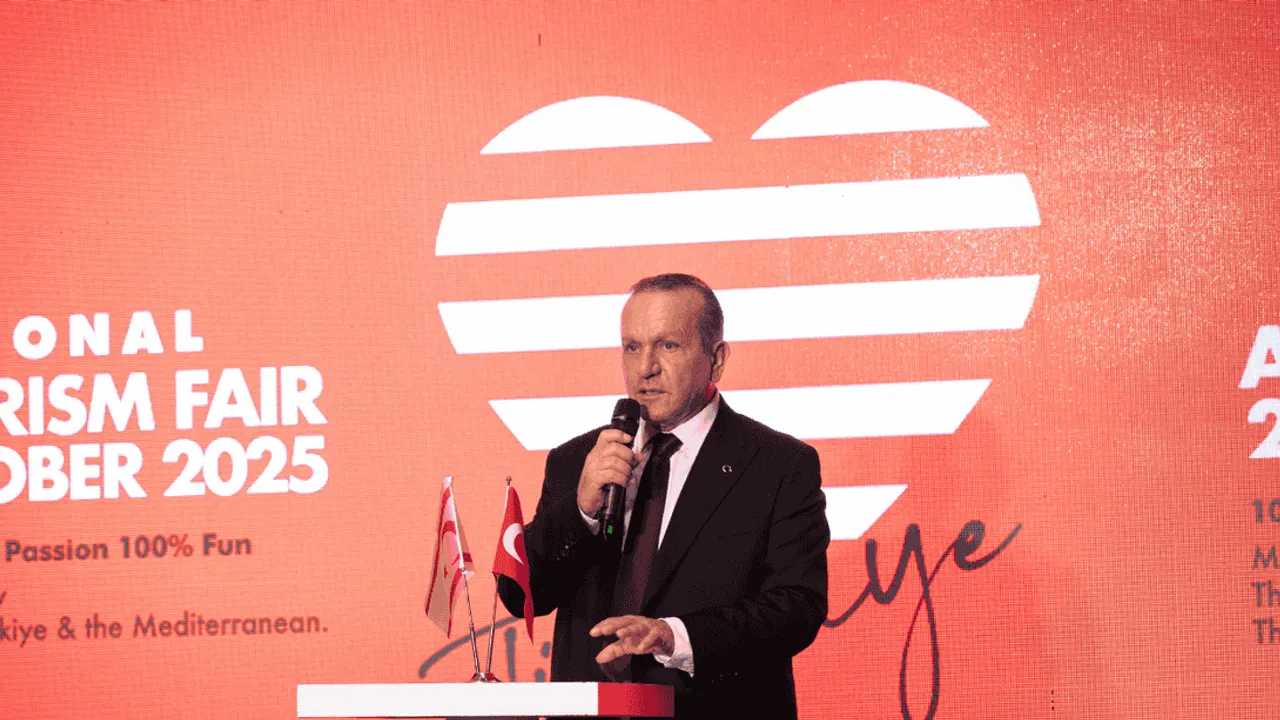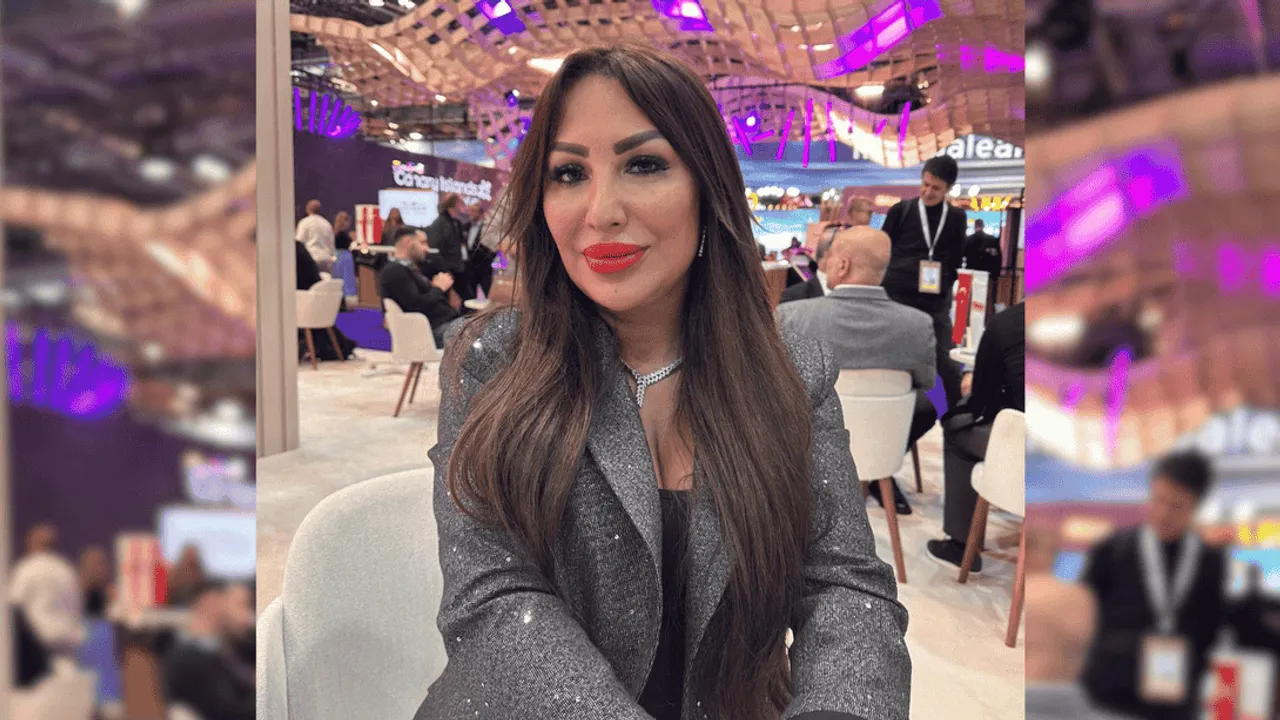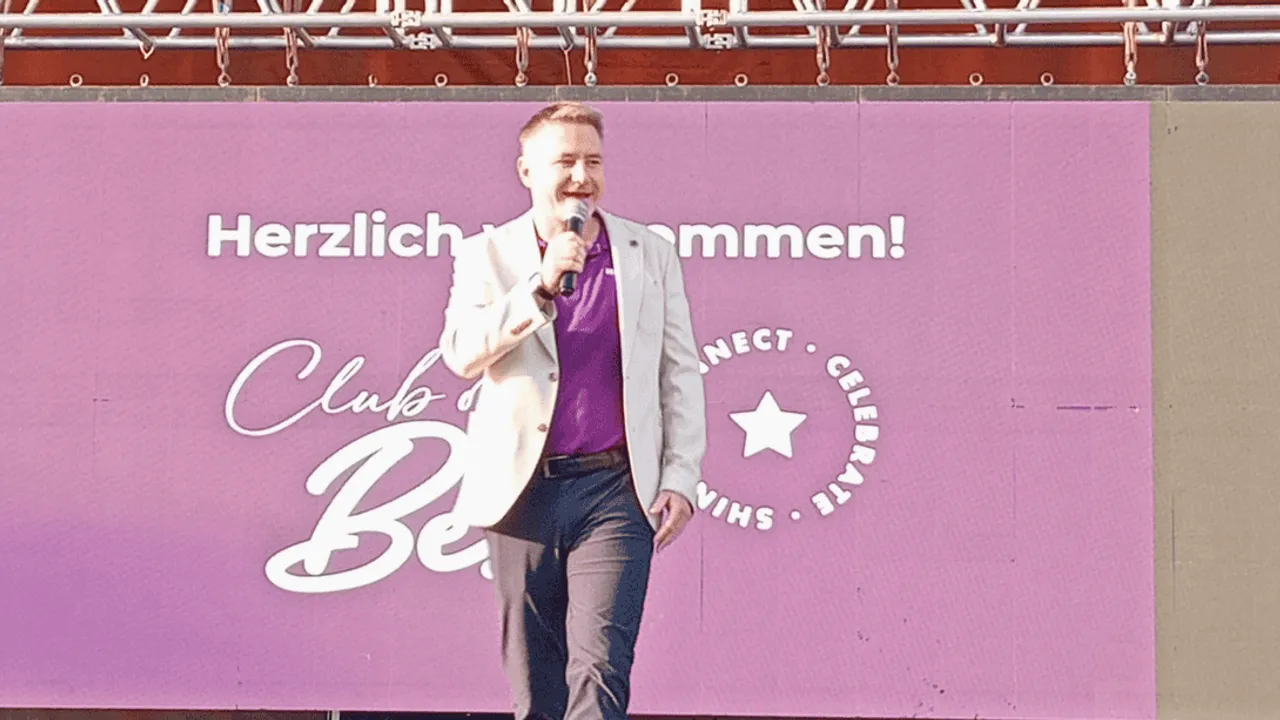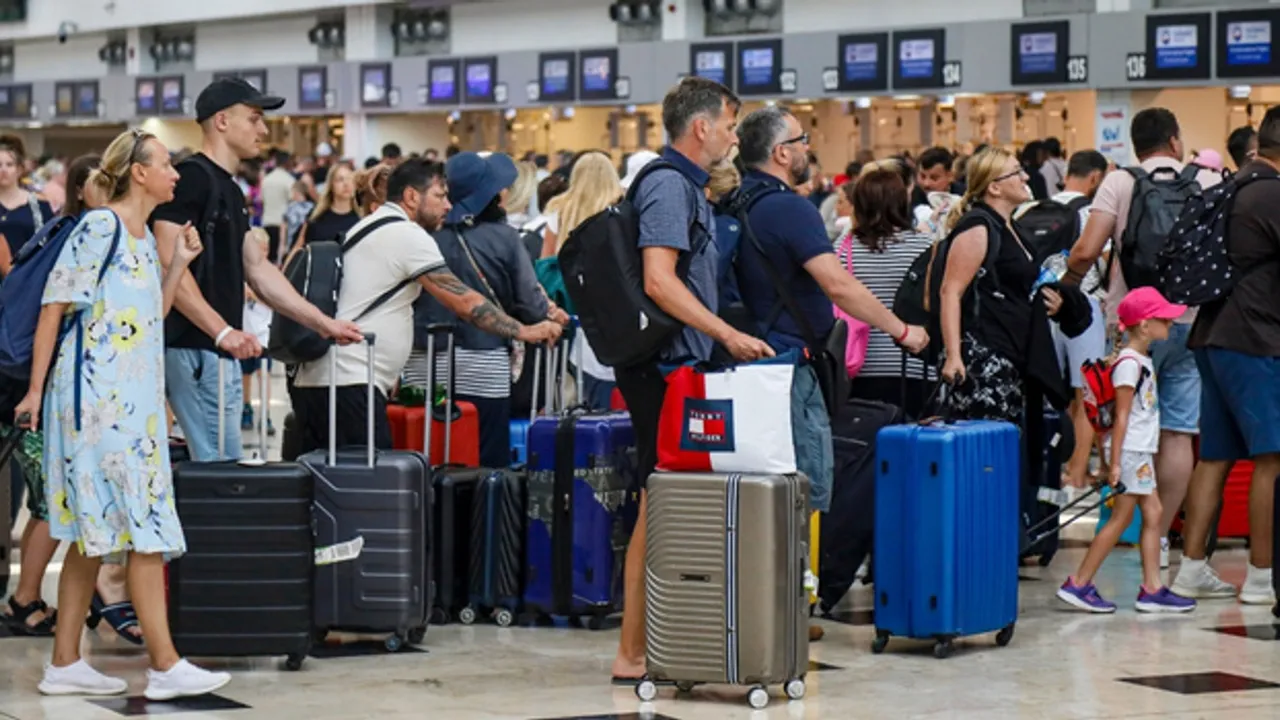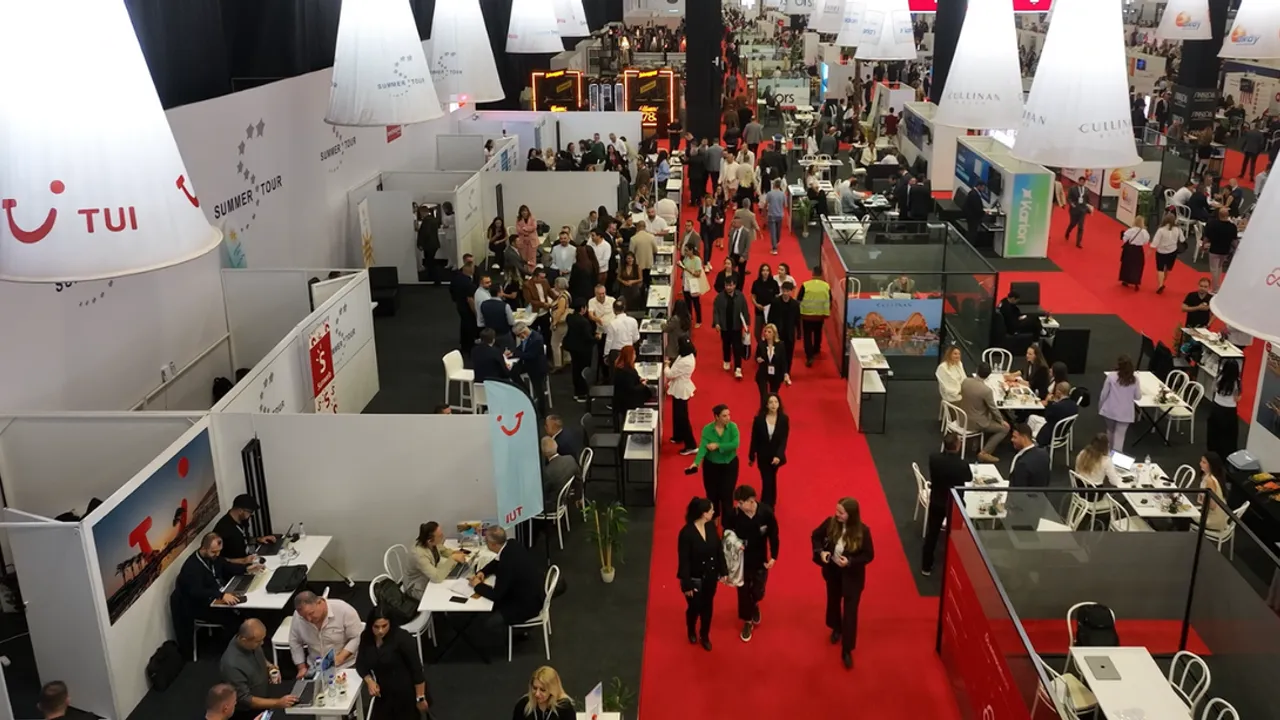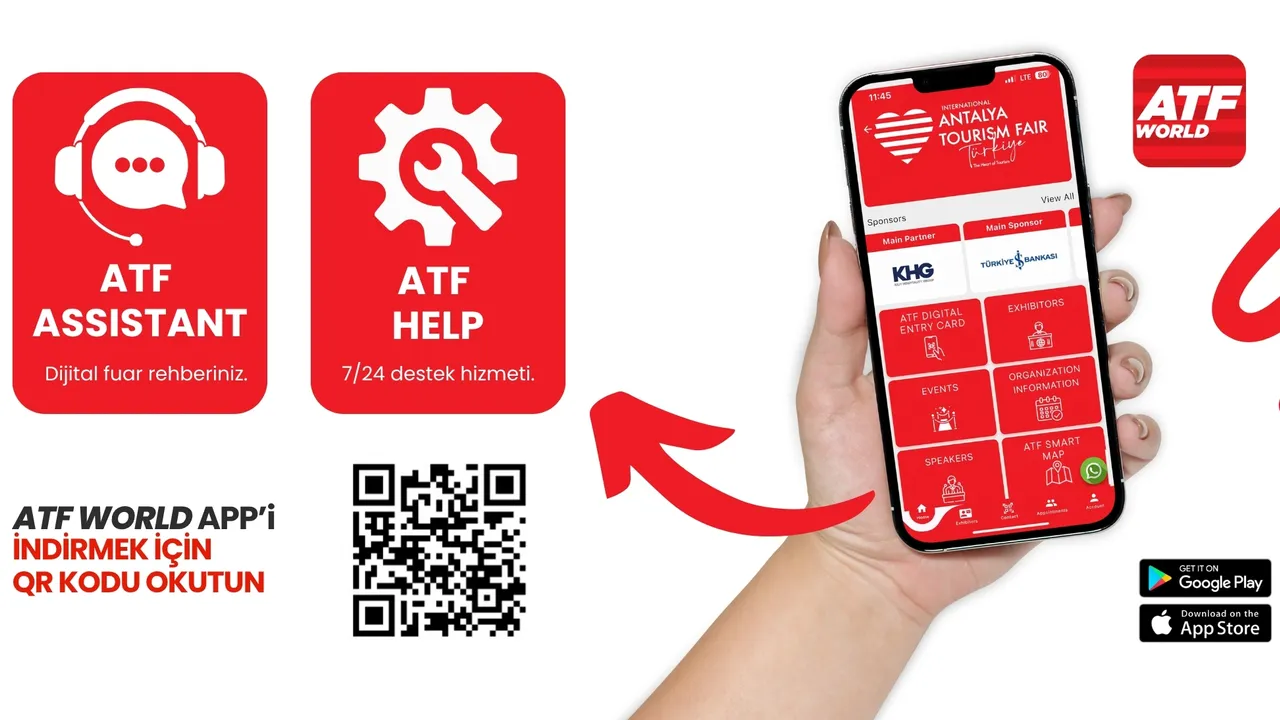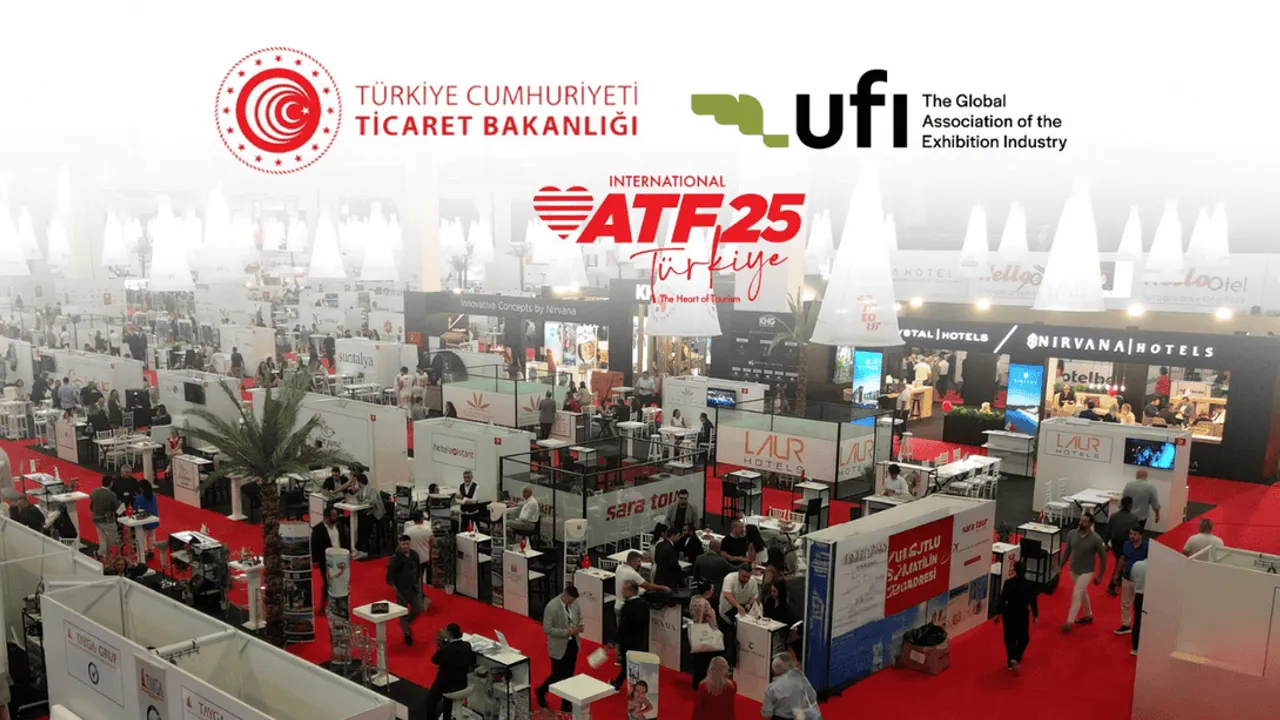İSLAM MEMİŞ SPOKE AT THE POYD DINNER: "2026 WILL BE THE YEAR OF RECOVERY, 2030 WILL BE A PIVOTAL YEAR"

El analista financiero İslam Memiş, en su extenso discurso en el almuerzo tradicional de POYD, hizo llamativas determinaciones sobre el futuro del sector, desde la incertidumbre financiera hasta los mercados de oro y plata, desde la paridad salarial hasta la estructura de capital. Memiş, que definió 2024 como un año de "facturación sí, pero sin beneficios", destacó la importancia de la asociación estratégica y la resistencia estructural en el camino hacia 2030.
El almuerzo tradicional de abril de la Asociación de Gerentes de Hoteles Profesionales (POYD) reunió a figuras destacadas del sector. Mientras que el presidente de POYD, Hakan Saatçioğlu, pronunció el discurso de apertura de la reunión, el analista financiero İslam Memiş, que asistió a la reunión como orador, hizo predicciones económicas sorprendentes para 2025. Al enfatizar que los efectos de las tensiones geopolíticas y la inflación se están profundizando gradualmente, Memiş dijo: "Ahora vemos más claramente que no podemos avanzar solo con el comercio. El mayor poder de las naciones es la información y una comunicación sólida".

"La información correcta debe combinarse con una fuerte previsión"
En su discurso de apertura, el presidente de POYD, Hakan Saatçioğlu, expresó sus evaluaciones sobre el sector con las siguientes palabras:
“Nuestros precios han llegado a un cierto punto en el extranjero. Teniendo en cuenta las dificultades económicas del mundo, los huéspedes preferirán mercados más asequibles. La forma más correcta de reducir nuestras preocupaciones es reunirnos con personas que tengan fuertes predicciones. Por eso quiero agradecer a İslam Memiş, que está hoy entre nosotros”.
"La incertidumbre prevalece en el nuevo orden mundial"
İslam Memiş, quien comenzó su discurso llamando la atención sobre las fragilidades de la economía mundial, dijo: "Ahora vivimos en un mundo impredecible" e hizo la siguiente evaluación:
“Es difícil predecir con qué nos encontraremos cuando nos levantemos por la mañana. ¿Se ampliarán las guerras comerciales, se producirá un desastre natural o aumentarán los riesgos geopolíticos? Solo Dios sabe estas cosas... tal vez también Trump. Esta incertidumbre se profundiza aún más en países como Turquía, que se encuentra en el centro de los riesgos geopolíticos”.
"Incluso los análisis técnicos ya no son suficientes"
Al afirmar que los acontecimientos de los últimos meses han ineficaz los análisis del mercado, Memiş dijo: “La lógica y el análisis técnico a veces pueden resultar insuficientes. En este punto, se ha vuelto mucho más importante centrarse en el trabajo y las ganancias cada mañana, y preguntarse cómo puede aumentar sus ingresos frente a la presión inflacionaria”.
"Las balanzas globales están cambiando"
İslam Memiş, también refiriéndose al impacto del presidente estadounidense Donald Trump en la economía global, enfatizó que las políticas destinadas a proteger la economía estadounidense deben seguirse de cerca:
“Movimientos como el estallido de la burbuja en los mercados bursátiles estadounidenses y el debilitamiento deliberado del dólar son precursores de nuevos equilibrios económicos. Si el presidente de la Fed, Powell, muestra resistencia a los recortes de tipos de interés, podría producirse una crisis, pero creo que Trump obtendrá lo que quiere. Porque el poder del capital que lo respalda se centra en los intereses estadounidenses a largo plazo”.
"La bolsa está subiendo, pero la pregunta fundamental es: ¿dónde están las ganancias reales?"
En su discurso, el analista financiero İslam Memiş, también refiriéndose al aumento de los mercados de capitales, se dirigió a los inversores con una pregunta llamativa:
“Sí, la bolsa está subiendo, se habla de índices. Pero hay una pregunta fundamental que debemos hacernos: si este hotel, esta empresa no está ganando dinero hoy, ¿por qué debería ir a comprar acciones de esta empresa? La esencia de la inversión es la productividad. La ganancia real proviene del valor que produce la empresa. La bolsa también debería ser solo un reflejo de este valor”.
“El acceso al oro se está volviendo más difícil, la desconfianza está aumentando”
Memiş, quien también evaluó las decisiones tomadas recientemente sobre la importación de oro, afirmó que estos movimientos tienen efectos negativos en la confianza de los inversores:
“Este año en Turquía se pagaron 5.000 dólares más por un kilogramo de oro que el precio mundial. Esto no es solo una diferencia de precio, sino también una señal de desconfianza en la política. Además, se prohibió la producción de oro de 0,25 gramos y medio gramo, y luego se prohibieron los oros con forro extraíble. Esto está mostrando una dirección. Y esta dirección significa pérdida de confianza”.
Afirmando que a los estados no les gustan los activos físicos, Memiş dijo: “El activo físico es incontrolable, independiente. Por eso los sistemas siempre prefieren la digitalización y el registro. Pero cuanto más prohibición haya, más tenderá el público en esa dirección”.
"La falta de confianza institucional se está profundizando"
İslam Memiş, enfatizando que la confianza en instituciones como TÜİK y el Banco Central se ha visto socavada, dijo: “Una institución revela datos pero los ciudadanos se ríen de ello. Esto ya no es técnico, es una crisis de reputación. No puede haber inversión ni se puede lograr la estabilidad sin confianza. El vínculo entre el estado y el ciudadano debe establecerse con confianza, no con leyes”.
“La columna vertebral de la economía son las personas que producen”
Memiş, enfatizando que todas las herramientas económicas son importantes a nivel técnico, pero que el valor real radica en las personas que producen, continuó su discurso con las siguientes palabras:
“The stock market, foreign exchange, interest… they are all tools. But the foundation of the economy is entrepreneurs who produce, take risks, and create employment. Progress cannot be made by simply banning or through interest rate policies without supporting them.”
“Gold is the strategic gem of this century”
Memiş, stating that gold is not only an investment tool but also a strategic metal, shared the following predictions for the coming period:
“It is predicted that gold production will decrease significantly after 2050 due to the climate crisis and resource constraints. This is why central banks are frantically collecting gold today. Apart from the USA's 8,133 tons of reserves, I estimate that Turkey has over 5,000 tons of gold under the mattress in addition to its official reserve of 615 tons.”
“Geopolitical risks are increasing, gold will continue to be a safe haven”
İslam Memiş, stating that he expects geopolitical risks to increase significantly in the second half of 2024, stated that gold could rise to $3,500 per ounce and gram gold to 6,000 TL:
“At the beginning of the year, I set a target of $3,500 for an ounce of gold and 4,500 TL for a gram of gold. Only four and a half months have passed and we are very close to these levels. This is an indicator of the suppressed movement in the market.”
“Think with gold, calculate with gold”
Memiş, who also offered concrete suggestions for companies and individuals he provides financial consulting to, concluded his words with the following call:
“If you have unofficial accounts, stocks, or operations; cost them with gold, stock them with gold, and move with gold, not with foreign currency. Because gold is the strategic gem of not only this period but this century.”
New Era in Gold and Silver: 24/7 Physical Access Era Begins
Financial Analyst İslam Memiş emphasized that access to gold and silver transactions is now possible at any time of the day in his evaluation of digital finance solutions at the POYD Meeting. “You can now access your physical assets even if it is 12 at night or 3 in the morning. Because robot safes are in operation. This system has been actively working and spreading for 7 years, especially in big cities,” he said.
Criticism to Banks: “High Spreads Are a Trust Issue”
Memiş, drawing attention to the high spread ranges applied by banks in gold and silver trading, said, “I have warned repeatedly, I wanted this abuse to be prevented. However, no solution was produced. I did not stand idly by and developed the ERP Platform.”
ERP stands out as a digital platform implemented in cooperation with Istanbul Gold Refinery and integrated into the Tahtakale market. Memiş emphasized that thanks to this system, citizens will be able to trade 24/7 via the application they download to their mobile phones and physical delivery is completely free.
What is the ERP Platform?
ERP (Electronic Refinery Platform) is defined as a safe and transparent gold-silver trading network that operates on a transaction infrastructure established in the Istanbul - Ankara - Rize triangle and is directly connected to the Tahtakale market. “Remember the periods when buying and selling were done with spreads of 100-200 TL in banks. This is not just a technical problem, but also a matter of justice,” said Memiş, announcing that the system will be widespread throughout Turkey.
Drew Attention to the Gold-Silver Ratio
Memiş also touched upon an issue that draws attention to gold and silver investment, and called on investors to follow the gold-silver ratio:
“Today, 1 kilogram of gold is equivalent to 100 kilograms of silver. This ratio is very high. In 2024, gram gold provided a return of 50% and gram silver 52%. Silver is not only an investment, but is also strategically valuable in the medical, solar panel and advanced technology sectors.”
Memiş stated that it is possible to make risk-free profit through silver by decreasing the ratio, and said, “You buy 100 kilos of silver with 1 kilogram of gold. If the ratio drops to 90, your profit will be 10 kilos of silver. With this exchange system, earnings can be made without risking money,” he said.
New Trend in Housing: 1+0 and 1+1 Apartments
İslam Memiş also drew attention to the housing sector after his financial evaluations. Memiş, stating that the increasing divorce rates and single living preferences have increased the interest in 1+1 and 1+0 apartments, said, “TOKİ has now started producing 1+1 apartments. This shows the changing structure of society. Those who did not like 3+1 are now satisfied with 1+1 because living conditions have changed,” he said.
Memiş, stating that he still believes that housing is an investment tool, said, “If you do not have a passive income today that will cover your family's expenses, you are poor even if you have money. Owning a house is not only about shelter, but also an important guarantee in terms of sustainability.”
“Did the Crypto Market Explode or Rise?”
Memiş's Bull Season Prediction for September-October
Economist İslam Memiş, also touching upon the cryptocurrency market, made striking statements, drawing attention to the recent fluctuations. “They said crypto was dead, it went to $75,000. Not enough, we said 85,000, now we are talking about 109,000 dollars. But social media, screens and influencer videos gave such gas that… they shouted ‘Come, get rich, be smart, be a man’. And what happened? It exploded again,” he said.
For the altcoin side, Memiş stated that he expects a bull market in September–October, emphasizing that this process will not be a period where everyone wins. "It is no longer enough to just have information in the crypto market; the one who can manage the information wins. Artificial intelligence and algorithmic systems are much faster than us. The future will be shaped more by system power than human power," he said.
"My New Book: Between Existence and Non-Existence"
At the end of his speech, Memiş also mentioned his personal projects and introduced his new book *‘Between Existence and Non-Existence’* to the audience. Stating that it offers a roadmap not only about money but also about meaning, value, and direction, Memiş said, "This book is like a password; friends who want it can obtain it."
In addition, Memiş shared that he is preparing a savings book for primary school level to raise financial awareness among children, and concluded his words by saying, "We are distributing this book free of charge throughout Turkey. Because while the system is changing, we also need to invest in children."
"My job is not just to tell, but to produce. Perhaps a sentence I say will take its place in your life."
"Access to Finance, Parity Problem, and the Reality of Capital"
In this part of his speech to POYD members, Financial Analyst İslam Memiş drew attention to the difficulties experienced by the tourism sector in accessing finance and systemic imbalances. Stating that many competing countries in Europe have easier access to grants, incentives, and sustainable financing resources, Memiş emphasized that in Turkey, access to these resources is either very late or must be content with weak support in terms of quality.
This picture directly affects not only investors but also professional managers in the sector. Memiş explained this situation with the following words:
"The minimum wage should of course be increased for social justice, but the salary difference between it and middle-level managers has seriously eroded. The improvement at the bottom is causing a collapse in the middle. However, if the middle class collapses, not only the base but the entire structure will be shaken. We must consider this balance to maintain sustainable quality in tourism."
"Global Capital is Changing Hands"
In the continuation of his speech, Memiş drew attention to another transformation taking place on a global level: capital is changing hands. He stated that this change is accelerating not only through economic factors but also through crises such as geopolitical and natural disasters. Emphasizing that the system is focused on "control" rather than production, Memiş said, "Capital is now being directed, and access to these resources is being seriously controlled."
Evaluating the investment environment in Turkey, Memiş stated that despite the support announcements of the state and relevant ministries, access in the field remains very limited, and said:
"Will the credit taps be opened, and if so, to whom and how much? There is no clear picture yet. My personal prediction is that the Turkish economy will be in a recovery process until the middle of 2026. For this reason, we must increase our resilience individually and corporately."
"Without a Model Change, There Will Be No Real Solution"
Memiş believes that the solution is possible not only with credit support but also with a change in mindset. Emphasizing that the real impact of most of the credit packages announced in Turkey does not even reach 20%, Memiş drew attention to the importance of structural and corporate collaborations at this point:
"Every company should have a plan B. You cannot only move forward with credit. The real solution lies in strong communication, permanent support mechanisms, and structural foundations that sector representatives will create by coming together."
"Towards 2030: Strategic Growth is Essential, Not Alone"
In his future assessments, Memiş stated that 2030 will be a threshold year economically and politically. Stating that many investors in Turkey still act with the reflex of "let's not take a partner," Memiş said that this perspective should change:
"Growing with individual capital is no longer sufficient. Correct foreign partnerships, know-how transfers, and long-term collaborations will be the most valuable capital in this process."
"2024: Turnover Exists, Profit Does Not"
In the closing of his speech, İslam Memiş shared a remarkable observation for 2024: "Turnover exists, but profit does not." Explaining the reason for this situation with the suppression of the exchange rate and the permanently high inflation, Memiş said that companies are experiencing cash shortages at the end of the year. He summarized the situation with the words, "Turnover is growing, but the only thing the boss asks is: Son, where is the money?"
"There are two basic elements that determine this picture; the stagnation in the exchange rate and the excessive and permanent inflation," said Memiş, adding:
"We really experienced cost increases exceeding 100% in some items, not 70-80% inflation. But we couldn't increase the price. So we just did the operation. We didn't make a profit.
When you don't produce financing; you can't invest, you can't renovate, you can't give your staff the salary they deserve, you can't allocate resources for education. Thus, the system also squeezes professionals. We are entering a vicious circle.
Exchange Rate Stagnant, Inflation Permanent
My prediction is clear, inflation is not temporary, it is permanent. Both in developed and developing countries. In Turkey, there is currently an artificial balance due to the suppressed exchange rate. When this pressure is removed, a Euro exchange rate of 50-55 in TL terms may be inevitable. Although this seems like an advantage for the tourism sector, the fact that the expense items are indexed to TL quickly erodes this advantage.
2030: A New World Threshold
Let's open a more strategic window now. My observation is that the world is heading towards a breaking point by 2030.
Economic wars, artificial intelligence, capital transfer, transformation of social structures… They are all moving towards a single point:
A new world order. America's unwillingness to soften towards China, the impact of the Russia-Ukraine crisis, the shift in Middle Eastern capital... These are not just geopolitical headlines, but financial and structural threats that directly concern Turkey. So what is the solution? I have a clear proposal that I have been repeating on every platform this year: Growth models with foreign partnerships.
Turkish investors still act with the reflex of "let's not take partners". But now the shape of trade, capital, and collaborations has changed. If we don't take partners, they will partner outside of us, and this time we will be left out of the system.
In a period when access to capital is so difficult in Turkey, the right foreign partnerships, know-how transfers and structural marriages can protect us both from short-term crises and from being caught unprepared for the world after 2030.
As a result, 2024 was not easy, recovery in 2025 will be limited, and real normalization seems difficult until mid-2026. But with rationally managed capital, institutionalized partnerships and sectoral solidarity, we can be the captains who come out of this storm into port."


